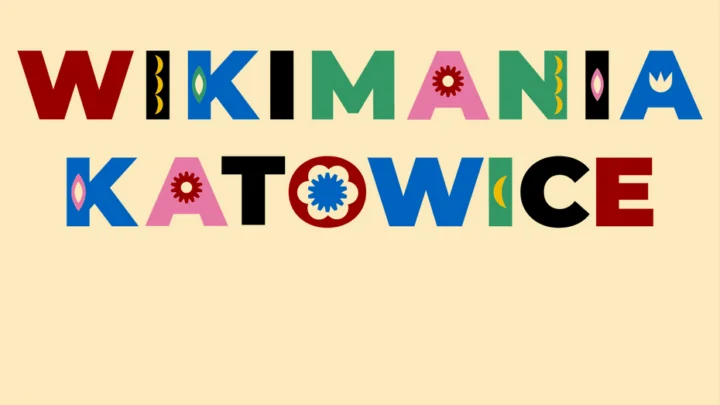Being a Volunteer Developer for Wikimedia projects: An Interview with Greta Doçi
WMDE allgemein
3. February 2017
Interview by Sandra Muellrick. This blog post is also available in German.
As a volunteer, Greta has been active in the Wikimedia movement for only a few years. She gives talks about Wikidata and is involved with Open Source development. In this blog post we want to introduce both her and the many opportunities the Wikimedia movement offers to try out new things, learn, and improve.
“Everything I know I try to put online to share e.g work with MediaWiki, queries or editing in Wikipedia or Wikidata. ”
For three years now, Greta has been editing Wiki projects on almost every afternoon. She is enthusiastic about bringing Free Knowledge to the world out of her native country of Albania. She’s been an editor for Wikipedia for over three years, and for more than one and a half year she’s been active on Wikidata. She also served on the board of the Albanian user group. Apart from her day job as an IT expert at an Albanian state organization, she organizes Wikidata workshops as well as the Albanian edition of the “Wiki Loves Monuments” photo contest, teaches university students on how to use Wikipedia, and for 3 months now she’s been teaching herself how to contribute code to MediaWiki.
“I love these things. That’s why I’m volunteering.”
She started to volunteer for charity causes at a young age. It’s important for Greta to produce something meaningful, finish projects, and have an impact on society. She loves to learn things, share knowledge and teach others. This is why she feels right at home at the Wikimedia movement.
“My first article in Wikipedia was about computer security. It was my favourite topic during my studies. It was my first article that I translated from English to Albanian during the first days of the Albanian Wikipedia.”
She started her journey into the world of Open Source as a participant in a Wikipedia workshop at her local hackerspace. This is how she started sharing knowledge about Albania, and translating knowledge into Albanian. As a translator from English to Albanian, she has worked for FSFE projects, Nextcloud, OSM, or participated in the toolbar development for Mozilla. Wikipedia proved to be the most efficient project for her, as editing and updates on data can are easy to be integrated into her daily schedule.
“I’m so in love in Wikidata. I’m working more than I used to”
In particular, she fell in love with the Wikidata project. She started to work on Wikidata as she was looking for a more technical Wikimedia project. Then she started adding facts on Albania and began coordinating Albania-related items with other volunteers. The biggest She spent the biggest amount of time updating data from the Albanian Wiki Loves Monuments contest in Wikidata. But it’s not just the work as an editor that she likes — she’s also happy about the opportunity to teach others about Wikidata. She just came back from the 33rd Chaos Communication Congress (or 33C3) where she stood in front of a an audience in a packed room with other volunteers to enthusiastically teach more people about Wikidata.
“The ideology of open source is to learn for yourself and others can take my code.”
At the “Ladies That FOSS” hackathon she got her feet wet at the MediaWiki source code for the first time. Matt Flaschen of the Wikimedia Foundation was her mentor there. She liked the cooperation: “He asked me to google problems first and look through the MediaWiki documentation to find my own solution”, she says. “That helped me not only with the smaller tasks at hand, but also to get an general overview of MediaWiki. There are no events like “Ladies That FOSS” in Albania where you get a mentor who goes over the code with you. There may be a presentation at a tech meetup and then you have to try it all by yourself.”
Ever since “Ladies That FOSS” she’s been contributing code, even though she struggles with finding the right place to get her code reviewed so she doesn’t have to wait for feedback for a long time.
“The community gives me a good feeling. Wikimedia is giving credit to the right people for the work they do. That’s something that motivates me to volunteer.”
Greta would love to see more support for local communities. The movement provides volunteers with with many programs to sponsor travelling to international meetings or organize Wikidata workshops at hackathons. Grants and scholarships are very helpful for her. Without them, she couldn’t afford travelling as a volunteer. However, her local Wikimedia user group has only eight active members who would love to expand their Open Source activities, but lack the resources to organize meetups and hackathons. “Offline meetings are where the community gets their motivation from”, says Greta.
In order to get more developers for MediaWiki, she thinks it’s important to have more people like herself at local spaces who share their knowledge with other volunteers and teach them programming or invite staff developers for in-depth workshops in Albania to get the local programmers’ community engaged. In any case, she hopes for more offline events to get more volunteers involved with projects.





